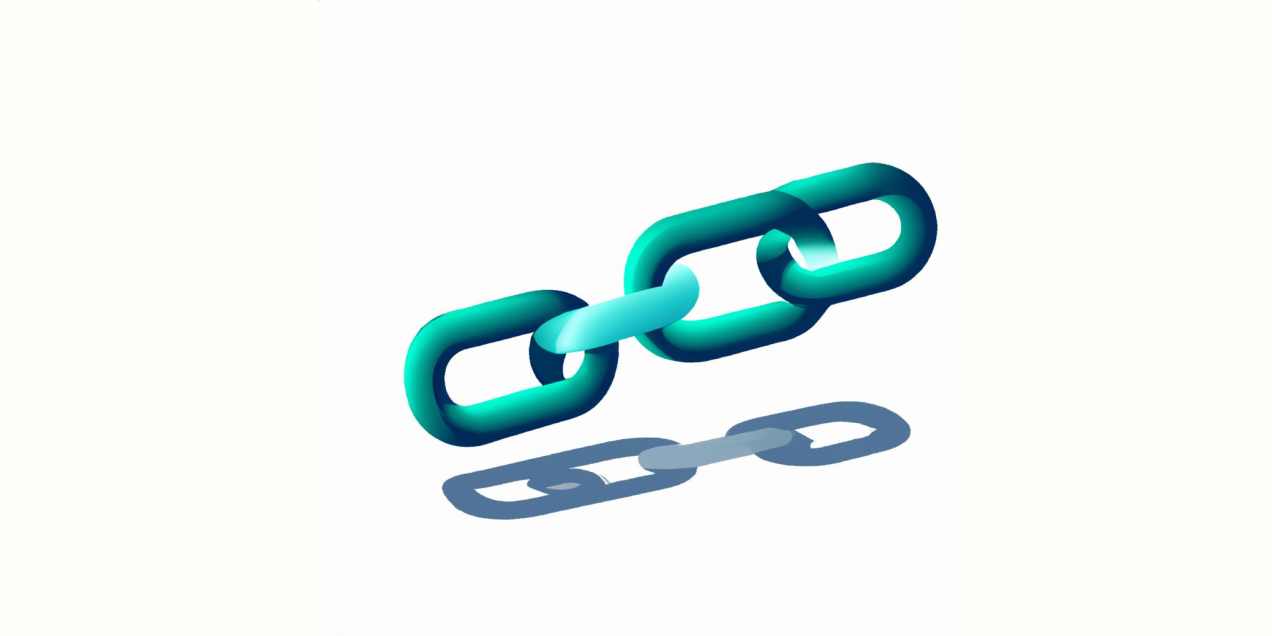Backlinks are a fundamental part of SEO, but not all links are created equal. While paid backlinks and high-authority partnerships often dominate the conversation, many website owners wonder if free backlinks can still be effective. The truth is, free backlinks can boost your search rankings—if they come from reputable sources and follow best practices. In this article, we’ll explore whether free backlinks really work, how to acquire them ethically, and what impact they can have on your website’s SEO performance.
Why do many sites strive to get free links?
In the world of digital marketing and search engine optimization (SEO), backlinks play an essential role in driving traffic, increasing search engine rankings, and building website authority. As a result, many site owners and SEO professionals strive to find ways to acquire free backlinks. These links are seen as a cost-effective method to improve SEO effectiveness without needing to make large investments in paid advertising or link-building campaigns. The primary appeal of free backlinks lies in their ability to increase a website’s visibility, reputation, and organic search performance.
In the evolving world of digital marketing, websites are constantly seeking ways to enhance their visibility and authority online. One of the most sought-after methods is acquiring free backlinks. But why do so many site owners and marketers place such a high value on these links? The answer lies in their potential to boost a website’s ranking on search engines without incurring additional costs. Backlinks, or inbound links from other websites, act as votes of confidence in the eyes of Google as a search engine. When these links come at no cost, they represent an opportunity to improve a site’s standing while keeping budgets intact.
The pursuit of free backlinks is driven by the desire to achieve SEO effectiveness. For small businesses, bloggers, and startups with limited resources, paying for links or hiring expensive agencies might not be feasible. Instead, they turn to link building strategies that allow them to get free backlinks organically. These strategies often involve creativity, persistence, and a deep understanding of how online ecosystems work. From forums to guest posts, the appeal of backlinks free lies in their accessibility—anyone with time and effort can potentially secure them.
Moreover, free backlinks for websites offer a way to level the playing field. Large corporations might dominate paid advertising, but smaller players can still compete by leveraging free website backlinks. The question, however, remains: do these cost-free links truly deliver the same value as their paid counterparts? To answer that, we need to explore their impact on search engine optimization and the mechanisms behind their success.
Backlinks, particularly free ones, help search engines understand the relationship between different web pages and determine the credibility of content. When a trusted or authoritative website links to your content, it signals to search engines that your page is valuable and worthy of higher rankings. This is why many website owners seek out opportunities to get free backlinks to their websites to strengthen their SEO efforts.

Can free backlinks improve SEO?
Absolutely! Free backlinks can significantly impact your SEO. While paid backlinks can offer a direct, immediate effect, free backlinks still provide considerable value if obtained strategically. However, the effectiveness of free backlinks is contingent upon several factors such as the quality of the website providing the link, the relevance of the linked content, and the overall strategy employed.
Google and other search engines have sophisticated algorithms that assess the quality of links pointing to a page. High-quality backlinks from authoritative sources can drastically improve your SEO rankings. Free backlinks, when sourced correctly, can improve your website’s domain authority, increase referral traffic, and contribute to higher search engine positions.
The short answer is yes—free backlinks can indeed improve SEO, but with some caveats. Search engines use backlinks as a key ranking signal, interpreting them as endorsements of a site’s credibility and relevance. When you get backlinks free from reputable sources, they can enhance your site’s authority, driving more organic traffic and improving its position in search results. This is where free backlinks SEO comes into play, offering a cost-effective way to strengthen your online presence.
However, not all free backlinks for your website are created equal. The effectiveness of these links depends heavily on their quality, relevance, and the context in which they’re placed. For instance, a link from a high-authority blog in your niche is far more valuable than a random link from an unrelated forum. Marketers often spend time trying to find backlinks free that align with their content, as this alignment signals to Google that the link is natural and meaningful.
The challenge lies in execution. While it’s tempting to flood your site with as many free backlinks online as possible, quantity doesn’t guarantee SEO effectiveness. Search engines have become smarter, prioritizing quality over sheer volume. Thus, the goal is to get free backlinks to website platforms that genuinely enhance your site’s reputation rather than dilute it with low-value connections.
However, not all free backlinks have the same level of impact. Low-quality backlinks may have little to no SEO benefit or, in some cases, even harm your website’s ranking. This makes it important to use link-building strategies that focus on acquiring only the best free backlinks.
Types of free backlinks
Backlinks come in various forms, and each type serves different purposes. Below are some of the most common types of free backlinks that can be beneficial to your website’s SEO efforts.
Forum backlinks and comments
One of the easiest ways to get free backlinks is by participating in online forums or commenting on blogs related to your niche. Many forums allow you to include a link in your signature or profile, and some even allow backlinks within your posts. Similarly, blog comments that are relevant and insightful can also provide free backlinks.
One popular way to get find competitor backlinks free is through forums and blog comments. Online communities like Reddit, Quora, or niche-specific forums allow users to engage in discussions and, occasionally, include links to their websites. By providing valuable insights or answering questions, you can naturally insert free backlinks for website in your signature or within the conversation.
However, this method requires finesse. Spammy or irrelevant comments can lead to bans or discredit your site. The key is to contribute meaningfully and ensure the link adds value to the discussion. When done right, forum backlinks can drive traffic and offer SEO effectiveness by connecting your site to active, engaged audiences.
However, it’s essential to ensure that your forum posts and comments add value to the conversation. Spammy or irrelevant posts with backlinks are often ignored by moderators and users, and they can even result in penalties from search engines. To make these backlinks truly valuable, focus on contributing useful information and engaging in discussions.
Guest posts
Guest posting is a popular and effective way to acquire high-quality, free backlinks. This method involves writing an article or blog post for another website in exchange for a link back to your site. Guest posts help establish you as an authority in your field while generating valuable traffic from the hosting website’s audience.
Guest posting remains a cornerstone of link building strategies. By writing high-quality articles for other blogs or websites in your niche, you can secure free backlinks to my website within the content or author bio. This method not only provides a link but also exposes your brand to new audiences.
The process involves reaching out to site owners, pitching unique ideas, and delivering content that meets their standards. While time-consuming, guest posts are a reliable way to get free backlinks to website platforms with established authority, making them a favorite for those seeking best free backlinks.
When guest posting, it’s important to target websites that are relevant to your industry or niche. This ensures that the backlink you receive is contextual and beneficial for your SEO. Moreover, guest posts that are well-written and informative can attract organic traffic to your website, further increasing the SEO effectiveness of the link.
Wikipedia and crowd marketing
Wikipedia is another source of free backlinks that many website owners aim to take advantage of. Since Wikipedia is one of the most authoritative websites on the internet, getting a backlink from a Wikipedia page can provide significant SEO benefits. However, it’s not as simple as just adding a link to your website; you need to ensure that your content is relevant and that your link is placed within an appropriate context.
Wikipedia offers another avenue for free backlinks, though it’s trickier to navigate. You can add free website backlinks by editing pages and citing your content as a source, provided it’s factual and relevant. However, Wikipedia’s strict editorial guidelines mean that only high-quality, verifiable information will stick.
Crowd marketing, on the other hand, involves engaging with communities on social platforms, Q&A sites, or review pages to subtly promote your content. By recommending your site in a helpful context, you can find backlinks to a page free while building trust. Both methods require patience but can yield free backlinks SEO benefits when executed thoughtfully.
Crowd marketing involves leveraging platforms like social media, Q&A websites, and online communities to promote your content and earn backlinks. By engaging with these platforms, you can often find free backlinks from high-traffic websites that improve your visibility and search rankings.
Do free backlinks affect SEO?
Free backlinks can significantly affect SEO if they are obtained through reputable methods. Google’s algorithms have evolved to detect and reward high-quality, organic backlinks while penalizing websites that rely on manipulative tactics such as paid links or spammy backlink practices.
The impact of free backlinks on SEO is undeniable, but it’s a double-edged sword. While they can elevate your site’s ranking and visibility, they can also harm it if misused. The real question is how search engines, particularly Google, interpret these links.
Google’s opinion on free backlinks
Google’s opinion on free backlinks is that they can be valuable for SEO as long as they are earned naturally and ethically. Google’s guidelines emphasize the importance of “natural” backlinks, which are earned through creating valuable content and engaging with others in your industry. Free backlinks that are acquired through white-hat techniques, such as guest posting, participating in forums, or creating shareable content, are viewed positively by Google’s algorithm.
Google’s stance on backlinks—free or otherwise—centers on quality and intent. The search giant encourages natural link building, where free backlinks for your website arise organically from valuable content. In its Webmaster Guidelines, Google emphasizes that links should be earned, not manipulated. This means that free backlinks online from reputable, relevant sources align with Google’s vision and can boost SEO effectiveness.
Conversely, Google penalizes artificial link schemes, including low-quality free backlinks from spammy directories or unrelated sites. Tools like Google’s Penguin algorithm are designed to detect such practices, potentially lowering your ranking or issuing manual penalties. Thus, while you can find backlinks free, their value hinges on authenticity and relevance.
However, Google also warns against acquiring free backlinks through manipulative practices like link farms or excessive commenting on blogs with no genuine purpose. Websites that participate in such activities may be penalized or even de-indexed by Google, resulting in a significant drop in rankings.

Which free backlinks are useful and which are harmful?
Not all free backlinks are created equal. Some are beneficial for SEO, while others can harm your website’s ranking. It’s essential to distinguish between high-quality backlinks and low-quality, spammy backlinks to avoid penalties.
High-quality free backlinks
High-quality free backlinks come from authoritative, relevant sources. These might include links from industry blogs, educational sites, or well-moderated forums. For example, how to get quality backlinks free often involves creating exceptional content that others naturally want to reference. Such links enhance SEO effectiveness by signaling trustworthiness to search engines.
To find competitors backlinks free , tools like Ahrefs or Moz’s free versions can reveal where your rivals are earning their links, inspiring your own efforts. The best free backlinks are those that align with your niche and audience, offering both traffic and ranking potential.
High-quality backlinks typically come from authoritative, relevant websites in your niche. Examples of high-quality backlinks include:
- Guest posts on industry-related blogs
- Links from educational or government websites
- Backlinks from media outlets and reputable news websites
- Mentions and links from social media profiles
- Links from high-traffic forums that engage in meaningful discussions
These types of backlinks can help establish your website’s credibility and improve its SEO effectiveness. They are seen as a vote of confidence by search engines, signaling that your content is valuable and trustworthy.
Low-quality and spammy backlinks
On the flip side, low-quality free backlinks can derail your SEO efforts. These often stem from link farms, irrelevant directories, or automated comment spam. Such backlinks free might seem appealing due to their ease of acquisition, but they can trigger Google penalties or dilute your site’s credibility.
Avoiding these pitfalls requires vigilance. Regularly audit your link profile to find backlinks to a page free and disavow harmful ones using Google’s tools. The goal is to prioritize quality over quantity, ensuring your free backlinks for website contribute positively.
Low-quality or spammy backlinks are links that come from irrelevant, low-authority websites or those that use manipulative tactics to generate backlinks. Examples of these include:
- Links from link farms or paid link schemes
- Backlinks from websites with poor content quality or little to no traffic
- Excessive backlinks from irrelevant forums or comment sections
- Links from websites flagged as spam by search engines
These backlinks are generally harmful to your SEO and can lead to penalties or a decrease in search engine rankings. To avoid these issues, it’s essential to focus on acquiring high-quality, relevant backlinks that will positively impact your website.
Ways to get quality free backlinks
There are several effective strategies for obtaining quality free backlinks. Here are a few proven methods:
- Create shareable content: Craft high-quality, engaging content that others in your industry will want to link to. This could include informative blog posts, infographics, case studies, or research papers.
- Reach out to influencers: Build relationships with influencers or bloggers in your niche and ask if they would be willing to link to your content. These relationships can lead to free backlinks from authoritative sources.
- Participate in online communities: Engage with online forums, Q&A websites, and social media groups related to your niche. By contributing value, you can often gain free backlinks from these platforms.
- Leverage broken link building: Find broken links on high-authority websites and suggest your own content as a replacement. This method not only helps website owners fix broken links but also allows you to earn a valuable backlink.
- Offer free tools or resources: By providing free resources, such as tools, templates, or calculators, you can encourage others to link to your website.
Should you buy backlinks instead of free ones?
While free backlinks are valuable, there are also situations where paid backlinks can offer significant benefits. Paid backlinks are often easier to acquire and can provide a more immediate impact on your SEO rankings. However, they come with a higher cost and may not always deliver long-term results.
Comparison of free and paid links
Free backlinks:
- Cost-effective and sustainable
- Typically require more time and effort to acquire
- Can result in organic, high-quality links when done right
Paid backlinks:
- Provide immediate results
- Higher risk of penalties if not acquired ethically
- Often come with a higher price tag
When deciding whether to buy backlinks or focus on free ones, consider your website’s long-term SEO strategy. Combining both free and paid backlinks in a balanced approach can yield the best results.

Case studies: how free backlinks affected websites
Real-world case studies provide valuable insights into the effectiveness of free backlinks in SEO. By analyzing websites that have successfully leveraged organic link-building strategies, we can better understand how these links impact search rankings, traffic, and overall online visibility. Some businesses have seen significant improvements, while others have struggled with low-quality or irrelevant backlinks. In this section, we’ll examine case studies that showcase both the successes and challenges of using free backlinks and what lessons can be learned from each experience.
Example of a site that received a traffic boost thanks to free backlinks
One example of a website that benefitted from free backlinks is a niche blog focused on eco-friendly living. By engaging in guest posting, commenting on related forums, and promoting content on social media, the website acquired several high-quality free backlinks. These efforts led to a significant increase in organic traffic and improved search engine rankings.
A site that was sanctioned due to low-quality links
On the other hand, a different website that relied on spammy free backlinks from low-quality directories and comment sections was eventually penalized by Google. Despite receiving an influx of backlinks, the website saw its rankings plummet, and it struggled to recover. This case highlights the importance of focusing on high-quality, relevant backlinks for SEO success.
Long-term strategy for building a link profile
Building a sustainable, high-quality link profile takes time and consistent effort. Here’s how to approach long-term link-building strategies:
- Focus on content creation: Develop content that naturally attracts backlinks, such as in-depth guides, research papers, and case studies.
- Diversify your backlink sources: Don’t rely on just one type of backlink. A diverse profile that includes guest posts, social media mentions, and forum links will create a more natural link profile.
- Monitor your backlink profile: Regularly check your backlinks to ensure that they remain relevant and of high quality. Disavow any harmful links to prevent SEO penalties.
By implementing a comprehensive, long-term strategy, you can build a robust link profile that will continue to provide SEO benefits for years to come.
Together We Rise: A Campaign for Everyone